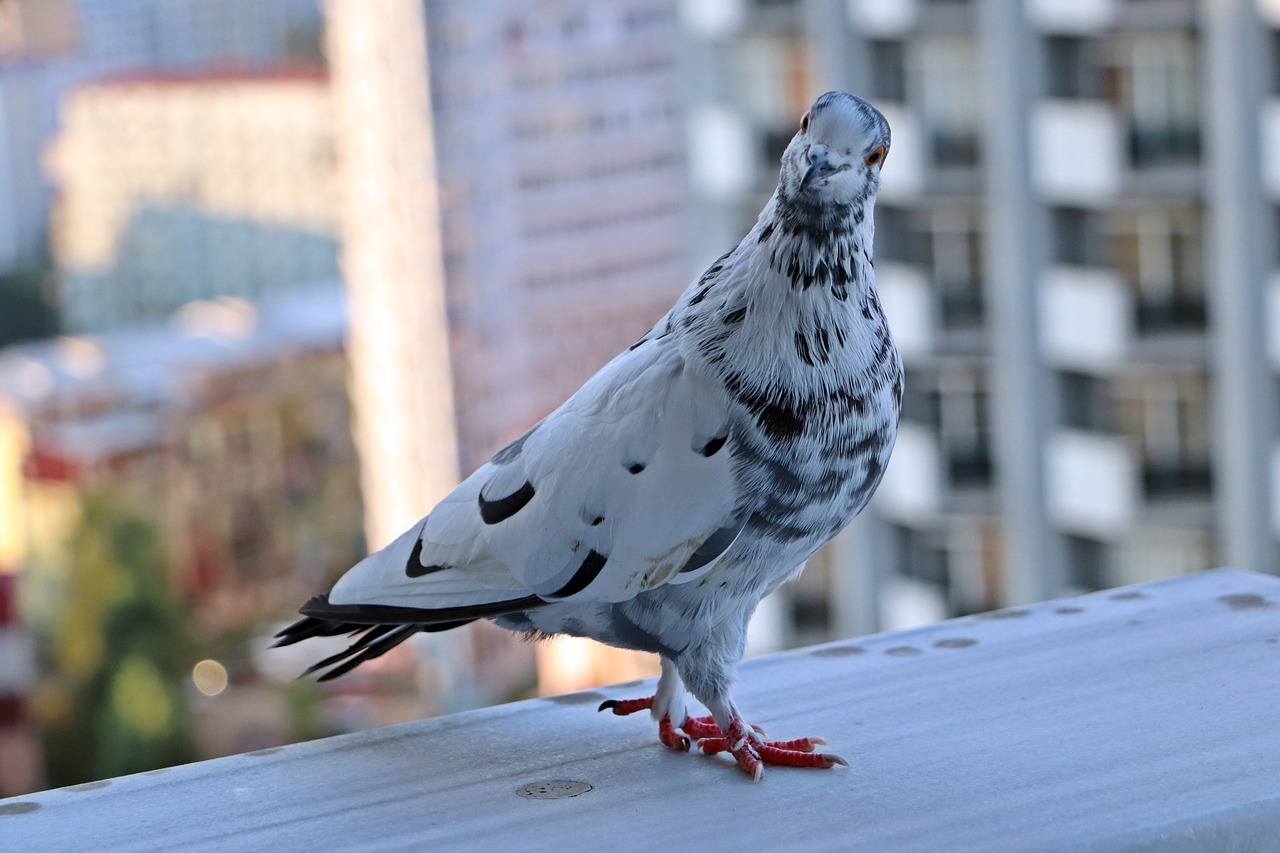Pigeon Problems in Apartments: Challenges Faced by Homeowners and the Power of Effective Pigeon Repellents
If you’re an apartment owner, pigeons might be an all-too-familiar nuisance. These birds, while beautiful in flight, can become a big headache when they decide to nest around apartment balconies, ledges, and rooftops. From mess to noise to damage, the problems caused by pigeons can be hard to ignore—and managing them in a humane and effective way is often challenging. Fortunately, pigeon repellents provide viable solutions to these common issues. In this post, we’ll explore the major challenges pigeons bring and how using the right repellent can make a significant difference.
Common Issues Apartment Owners Face Due to Pigeons
- Constant Droppings and Clean-Up Hassle
- Pigeons are notorious for leaving droppings everywhere they go. Balconies, railings, window sills, and air conditioning units can quickly become covered in waste. These droppings don’t just look bad; they can corrode surfaces, damage paint, and require regular cleaning, which can be time-consuming and costly.
- Health Risks and Allergies
- Pigeon droppings carry bacteria, fungi, and parasites, potentially causing respiratory issues or allergic reactions. Diseases like histoplasmosis, cryptococcosis, and psittacosis can spread through their droppings, putting residents at risk. For families with young children, the health hazards can be even more concerning.
- Damage to Property and Structures
- Pigeon droppings are acidic and can cause gradual erosion on building materials such as concrete and metal. Beyond droppings, pigeons nesting around air conditioners or vents can lead to blockages, which may result in decreased efficiency or require expensive repairs.
- Noise and Disturbance
- Pigeons are not the quietest neighbors. Their constant cooing, especially early in the morning, can disrupt sleep and affect the peace of the home. Nesting pigeons can also become territorial, making noise that adds to the irritation for apartment owners and tenants.
- Frequent Nesting and Return Behavior
- Pigeons have a habit of returning to the same location to nest, meaning that once they choose a spot, they’re likely to come back again and again unless a deterrent is implemented. This makes it tough for homeowners to tackle the problem once it’s started, as pigeons are stubborn and persistent.
How Pigeon Repellents Can Make a Difference
Finding an effective, humane solution is key to reducing pigeon problems without harming the birds. Let’s look at how repellents can make a significant impact.
1. Visual and Motion Deterrents
Visual repellents work by tricking pigeons into thinking a predator is near. They can be inexpensive and easy to install on balconies or window sills, making them a great option for apartment residents.
- Reflective Tape or Decoys: Reflective tape, foil strips, or predator decoys (like plastic owls or hawks) can help scare pigeons away by creating movement and light reflection. This keeps pigeons from feeling comfortable enough to land or nest.
2. Physical Barriers and Spikes
Physical barriers are particularly effective at preventing pigeons from nesting or perching on ledges, sills, or rails. They are durable and highly effective for long-term prevention.

- Bird Spikes: Bird spikes are thin, spike-like structures that can be easily installed on ledges, balconies, or around air conditioning units. They’re safe and humane since they don’t harm pigeons but make it impossible for them to find a stable spot to perch.
- Bird Netting: Bird netting can cover balconies or windows, keeping pigeons from entering without obstructing the view. It’s a practical option for larger areas and is discreet enough to not affect the look of the apartment.
3. Gel and Scent-Based Repellents
Non-toxic gels and scent-based repellents are perfect for smaller spaces, creating a smell or texture pigeons find uncomfortable.
- Sticky Gels: Applied on window sills or ledges, these gels create a slightly sticky surface that pigeons dislike. They’re transparent and non-toxic, ensuring they don’t harm pigeons but discourage them from returning.
- Essential Oils or Spices: Some natural scents like peppermint oil, cinnamon, or chili powder can be used as pigeon repellents. These can be sprayed around entry points or ledges to keep pigeons away while adding a pleasant smell for residents.
4. Sound-Based Repellents
Sound-based repellents emit high-frequency sounds that are uncomfortable for birds but are mostly undetectable to humans. They are compact and can cover significant areas, ideal for larger balconies or rooftop spaces.
- Ultrasonic Devices: Ultrasonic devices emit high-frequency sounds that irritate pigeons without disturbing humans. For residents with pets, ensure the frequency setting doesn’t affect them.
5. Consistency is Key
With pigeons, consistency is essential. Regular application of repellent techniques and maintaining clean, unattractive areas can prevent pigeons from considering your space a long-term home.
Choosing the Right Repellent for Your Apartment
Finding the ideal solution often requires a bit of trial and error, as the effectiveness of each method can vary based on location, weather, and pigeon habits. A combination of visual, physical, and scent-based repellents may yield the best results.
When investing in repellents, prioritize those that are humane, low-maintenance, and safe for the environment. Apartment owners can also consider working with their building management to implement bird control solutions that cover common areas or larger building ledges.
Final Thoughts
Pigeons might seem like an inevitable part of urban living, but with the right repellent strategies, apartment owners can keep their spaces clean, peaceful, and free from health risks. Repellents offer humane, cost-effective solutions, providing relief from the mess, noise, and health concerns pigeons bring. By choosing the right combination of deterrents, you can enjoy a pigeon-free apartment without compromising on your love for all creatures.

